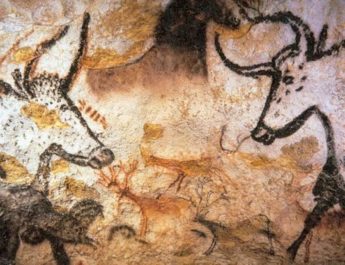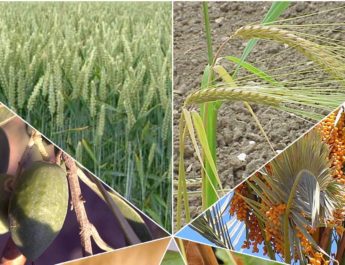Matthew 9:36-37
Narrative Lectionary 141
36 When he sawA the crowds,B he had compassionC for them
A “saw” = horao. To see, perceive, attend to, look upon, experience. Properly, to stare at and so implying clear discernment. This, by extension, would indicate attending to what was seen and learned. This is to see, often with a metaphorical sense. Can include inward spiritual seeing.
B “crowds” = ochlos. Perhaps from echo (to have, hold, possess). This is a crowd, the common people, a rabble. Figuratively, it can refer to a riot.
C “had compassion” = splagchnizomai. 12x in NT– 8x of Jesus having compassion on people or crowds. From splanxnon (inner organs, entrails; seen as the root of emotions). This is moved to compassion from deep within oneself – visceral empathy or sympathy, being deeply moved.
because they were harassedD and helpless,E like sheepF without a shepherd.G
D “harassed” = skullo. 4x in NT. This is to skin or flay. Figuratively, it can be to distress, annoy, or harass.
E “helpless” = rhipto. 7x in NT. Perhaps related to rhapizo (to hit with a rod or to slap); from a derivation of rhabdos (staff, rod, cudgel; a staff that denotes power, royalty, or authority); from rhepo (to let fall, to rap). This is to cast, toss fling, or disperse. It is a quick toss in contrast to another word ballo, intentional hurling, and teino (stretching outward).
F “sheep” = probaton. Probably from probaino (to go forward literally or to advance in years); {from pro (before, ahead, earlier than, above) + the same as basis (a step, pace, foot); {from baino (to walk, to go)}}. This is literally easily led and so a sheep or another grazing animal. Also use figuratively of people who are led easily.
G “shepherd” = poimen. 18x in NT. This is shepherd or pastor – one who protects. It is also used figuratively to mean ruler.
37 Then he said to his disciples,H “IThe harvestJ is plentiful,K but the laborersL are few;M
H “disciples” = mathetes. From matheteuo (to make a disciple of); from manthano (to learn key facts, gain knowledge from experience; generally implies reflection as part of the learning process); from math– (thinking things through). This is a disciple, learner, or student. It is where we get “mathematics” from.
I {untranslated} = men. This is truly, indeed, even, in fact. Often, it is not translated, but used to emphasize affirmation.
J “harvest” = therismos. 13x in NT. From therizo (to reap, gather, harvest); from theros (summer; the heat, which implies summer); from thero (to heat). This is harvesting or reaping. By implication, it is the crop that was harvested.
K “plentiful” = polus. This is much, often, plenteous – a large number or a great extent.
L “laborers” = ergates. 16x in NT. From ergazomai (to work, labor); {from ergon (word, task, action, employment)}. This is a field laborer – later used to refer to workers in general. It can also be used figuratively for teachers.
M “few” = oligos. This is few or small – it can be a short time or extent, low light, amount, or worth.
Image credit: “Wheat, Barley, and Harvests” by David Padfield of LUMO Project, 2015.




